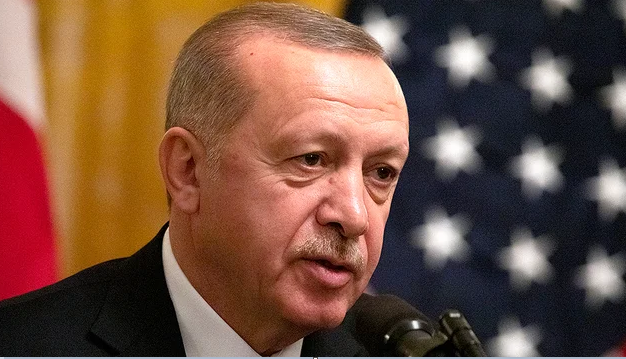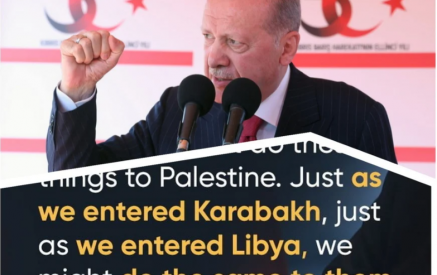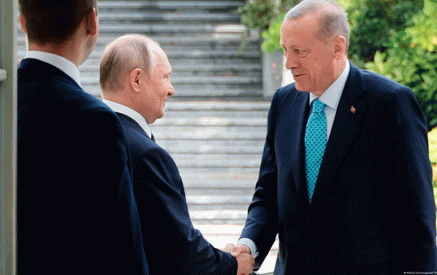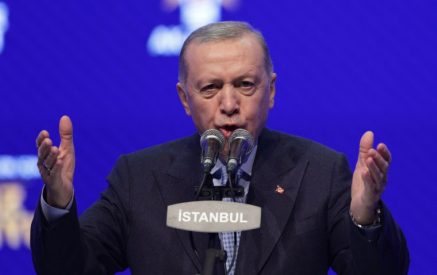The Hill. Tensions between historic rivals Greece and Turkey once again have come to the fore, ostensibly over gas exploration and drilling rights in the Eastern Mediterranean. The potential for conflict continues to grow because Turkey refuses to recognize Greek and Cypriot exclusive economic zones (EEZ) and has staked out its own EEZ in the same area. It has done so even though it is not a party to the United Nations Convention on Law of the Sea (UNCLOS) that established the principle of national EEZs. Turkey has gone further. It has sent a naval escort to support the exploration ship Oruç Reis in what the international community recognizes as the Greek EEZ.
Greece is not alone in its concern about Turkey’s aggressiveness. Ankara also has reached an agreement with the so-called Government of National Accord, the internationally recognized Libyan government based in Tripoli, to create an EEZ that overlaps with those of both Greece and Egypt. Its claims also clash with those of Lebanon and Israel, which, like Egypt, have their own EEZ agreements with Cyprus.
Israel, Egypt and Cyprus are actively exploiting gas fields. Lebanon is undertaking its own gas exploration. Apart from Lebanon, all of these states plus Jordan and Italy, and even the Palestinian Authority, have responded to Turkish claims by creating the Eastern Mediterranean Gas Forum, headquartered in Cairo.
The disputes with Turkey are not limited to eastern Mediterranean states. French and Turkish warships nearly clashed when France accused Turkey of funneling arms to the Tripoli government, to which France at best pays only lip service. French warships recently exercised with their Greek counterparts, infuriating Ankara, and France announced that it is beefing up its eastern Mediterranean naval presence to support Greece and the other states at odds with Ankara.
Read also
As the tension with France indicates, disputes over gas exploration rights are only the latest manifestation of long-simmering hostility between Turkey and the states it confronts. Greece and Cyprus never have accepted the 1974 invasion of Cyprus and its creation of a Turkish Republic of Northern Cyprus that Turkey alone recognizes. France long has blocked Turkish entry into the European Union, not only because of the 1974 invasion, but also because of its longstanding support of the Kurds, including the Syrian Kurds.
Turkey also resented the 2011 vote of the French National Assembly to fine anyone who denied the Armenian genocide, even though the French courts later termed the decision unconstitutional. At the same time, France worries about Turkish influence in Tunisia should its forces become even more deeply entrenched in neighboring Libya. Paris also seeks to prevent the growth of Turkish influence in Lebanon, with which France has a long, historic relationship, especially with that country’s Christian communities.
Egypt actively supports Mohammad Haftar’s anti-Islamist Libyan Liberation Army, still at war with the Tripoli regime. Having rebounded from the chaos of Mohammed Morsi’s short-lived Muslim Brotherhood government, which Ankara supported, the Sisi government cannot tolerate an Islamist state on its border.
Israeli-Turkish relations have been in the doldrums for over a decade. Turkish President Recep Tayyip Erdoğan never forgave the Israelis for not informing him of their attack on Hamas in 2006, only days after former Israeli Prime Minister Ehud Olmert visited Ankara. Four years later, Israeli commandos killed Turkish citizens on the Mavi Marmara, a ship that sought to break the blockade of Hamas. Israel suspected that the Turkish government was aware of the Mavi Marmara effort. Ankara, meanwhile, held Jerusalem accountable for the death of its civilians.
It is widely known that Erdoğan supports the Muslim Brotherhood and seeks to expand Turkey’s influence over its former Ottoman domains. In doing so, he has chosen to confront six eastern Mediterranean states — and France — simultaneously, while further alienating the European Union, to which France, Greece and Cyprus all belong. The U.S. Navy’s Sixth Fleet is joining its French counterpart in attempting to maintain some semblance of stability in an already volatile region.
Whether Erdoğan will recognize that he has bitten off more than he can chew remains an open question. If he has any sense, he will modify his aggressive behavior before he finds that his country pays a price that it can ill afford.
Dov S. Zakheim is a senior adviser at the Center for Strategic and International Studies and vice chairman of the board for the Foreign Policy Research Institute. He was under secretary of Defense (comptroller) and chief financial officer for the Department of Defense from 2001 to 2004 and a deputy under secretary of Defense from 1985 to 1987.

























































